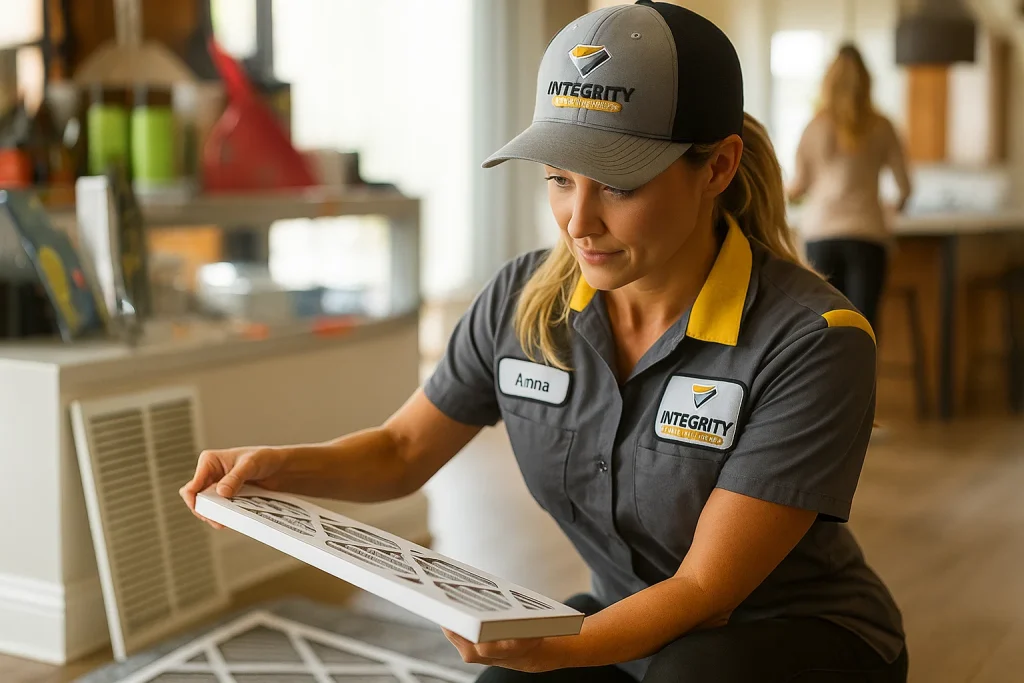When it comes to maintaining your HVAC system, one of the simplest yet most important tasks is changing the air filter. A clean filter keeps your heating and cooling system running efficiently, protects your indoor air quality, and helps you save money on energy bills. But how often should you really change it? The general rule of thumb is every 1–3 months, but that timeframe can shift depending on your home, your lifestyle, and your system.

Why Regular Filter Changes Matter
Your HVAC filter captures dust, pollen, pet dander, and other airborne particles before they circulate throughout your home. Over time, the filter becomes clogged, making it harder for air to pass through. This forces your system to work harder, which not only raises energy costs but can also shorten the lifespan of your equipment. Beyond efficiency, a dirty filter also reduces indoor air quality, potentially aggravating allergies and respiratory issues.
The 1–3 Month Guideline
Most manufacturers and HVAC professionals recommend changing standard air filters every 1–3 months. This range provides enough flexibility to account for different households, but it’s important to evaluate your own situation. For example:
- Every 1 month: Homes with pets, allergies, or high dust levels benefit from monthly changes.
- Every 2 months: Smaller households without pets or health concerns often find this timeframe adequate.
- Every 3 months: If your home is relatively low-traffic, with no pets and minimal dust, quarterly changes may be enough.
Factors That Affect Frequency
Not all households are the same, and several factors can influence how often you should swap out your filter:
- Pets – Cats and dogs shed hair and dander that quickly clog filters. Multiple pets typically require more frequent changes.
- Allergies or Asthma – If someone in your home suffers from allergies or respiratory issues, more frequent filter replacements can make a noticeable difference in comfort and health.
- Household Size – Larger families tend to generate more dust, dirt, and debris, which can shorten filter life.
- Air Quality – Homes in urban areas with pollution, or in regions with high pollen or wildfire smoke, may need filter changes more often.
- System Usage – Running your HVAC system daily, especially during peak summer or winter, will clog filters faster than seasonal use.
Signs It’s Time for a Change
Even with the general timeline, it’s smart to keep an eye out for signs that your filter needs replacing sooner:
- Visible dust buildup on the filter.
- Increased allergy or asthma symptoms indoors.
- HVAC system running longer cycles than usual.
- Rising energy bills without explanation.
Changing your HVAC air filter is quick, inexpensive, and has a big impact on your comfort and system efficiency. While the 1–3 month rule works as a guideline, pay attention to the unique needs of your household. A little attention to your filter today can prevent costly repairs and keep your indoor air fresh and healthy tomorrow.
Do you need assistance with changing your air filter? We can help! Schedule HVAC maintenance with Integrity Comfort Systems. We keep you cool when it’s hot and warm when it’s not.










